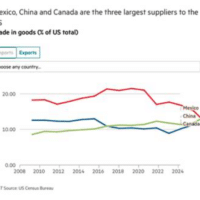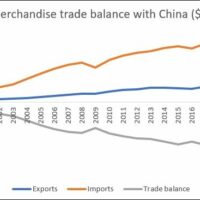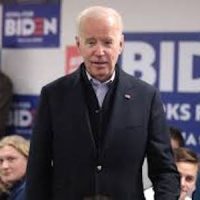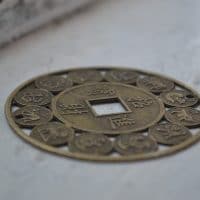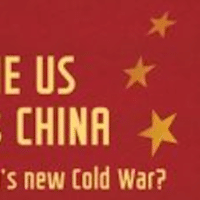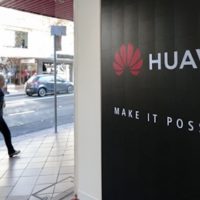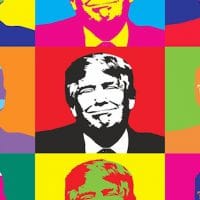-
Liberation day
It’s not April Fools day (1 April). But it might as well be as later today U.S. President Donald Trump announces another barrage of tariffs on imports into the U.S. in what Trump calls ‘Liberation Day’ and what America’s voice of big business and finance, the Wall Street journal, has called “the dumbest trade war in history.”
-
What has the Trade “War” between the United States and China achieved?
On July 6, 2018, U.S. President Donald Trump unilaterally imposed a 25 per cent tariff on Chinese imports of around $34 billion, and further tariffs in 2018 and 2019—claiming that trade between U.S. and China had been unfairly skewed in China’s favour and needed to be rebalanced.
-
Biden nominees call for tough stance on China during confirmation hearings
During Tuesday’s confirmation hearings before the Senate, nominees for positions in Joe Biden’s cabinet expressed their support for a tough stance on China.
-
China tech ban mirrors 1980s attempts to destroy Japanese competition
In the 1980s, the U.S. imposed a 100% tariff on virtually all Japanese electronics and forced Tokyo to sign a one-sided trade deal that reserved much of its domestic semiconductor sector for American companies.
-
How a lawbreaking international coalition failed to overthrow Venezuela’s government
On January 5, 2021, the newly elected National Assembly took its seats in Venezuela’s capital. That day the Lima Group released a statement most of its members signed saying that they did not recognize the legality of the assembly.
-
Why America’s economic war on China is failing
U.S. President Donald Trump—supported by most of the U.S. establishment—deepened the U.S. government’s assault on the Chinese economy.
-
Trade and tensions between the U.S. and China
The Donald Trump administration uses every mechanism to cut China out of the global supply chain, but nothing seems to be working as a resolute China is unwilling to back down and dismantle its technological gains.
-
‘The U.S. vs China: Asia’s New Cold War?’ by Jude Woodward reviewed by Sean Ledwith
The coronavirus pandemic of 2020 has slammed into the global system with almost the same impact we might expect from an asteroid strike. All aspects of economic, cultural and political activity on the planet have been devastated and disrupted in ways that seemed unimaginable just a few months ago.
-
Huawei ban drags China, U.S. into tech cold war
Industries prepare for decoupling as worst scenario, accelerating homegrown technologies as Washington hawks destroy global supply chain.
-
The imperial intentions of Trump’s trade war babble
In defence of his trade war with China, Trump claims that ‘when you’re $500bn down you can’t lose.’ The problem with this stance is that persistent U.S. trade deficits with China are arguably a sign of U.S. strength or even imperial privilege, not weakness. However, on this issue, he has much of conventional economics wisdom supporting him in his delusions that the U.S. is being treated unfairly or is ‘behind’ based on these deficits.

